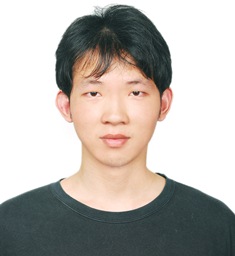Each year, scientific organizations hold their biggest event of the year, the annual conferences, in major cities around the world. Physicians with the same field of expertise travel across the world just to get an update on the newest diagnostic method or treatment guideline. It is the moment when like-minded people gather and share their knowledge to improve their clinical practice and the quality of health care. We all know that attendings or even residents have a habit of attending conferences once or several times a year. But where do medical students stand?
Attending conferences is not a requirement for graduation. Anyone can succeed in medical school even if he or she never went to a conference. But when I think about all the benefits someone can gain from participating in such an activity, it’s hard to ignore that those who do not attend conferences are missing out. Here is a list of perks of attending conferences as a medical student:
Gain experience making presentations
At most conferences, there are opportunities to present a poster or give an oral presentation. Sometimes there is an abstract competition to help bring about a student’s best effort by inspiring creativity and challenging the student to utilize their skills.
Get feedback on your work
People will see your presentation, and many may provide feedback. If you are working on a proposed research project, you learn how to better your work to meet people’s expectations.
Opportunity to critique and learn
Attending oral presentations and poster sessions gives you an opportunity to analyze ideas and dig deeper to get to your true potential.
Develop your network contacts
Conferences provide an opportunity to meet new people and strengthen existing contacts through formal and informal interactions.
Low registration fees
In order to encourage students to attend conferences, low registration rates are offered to these young participants; sometimes they are even free for students.
There are a number conferences held by a wide variety of medical organizations. How do medical students find the most suitable one to attend? First, I would encourage potential attendees to know where their interests lie. For example, if you already know you are interested in internal medicine, see what your local ACP chapter has to offer. ACP holds their national annual meeting, ACP Internal Medicine Meeting, every spring. You can always look up their website for more details. For international organizations, you are looking forward to talking to physicians from countries other than your own. There are many European and Asian organizations that can broaden your horizons; however, you can probably meet numerous international physicians in U.S. conferences, as well.
If you are attending for the first time and are not confident enough to go to a conference full of professional and experienced physicians, look for student organizations. Don’t think for a second that these conferences are secondary just because they are held by medical students. Oftentimes, you can benefit more from them because they are designed solely for medical students: YOU are the main audience.
At the end of the day, the best way to experience the full benefit of participating in a conference is to present your hard work. Besides learning about the diversity and complexity of research being conducted by other health care professionals, you can choose to take the initiative and start contributing to the field of medicine at an early stage.
Let me give an example of a conference experience that I had when I was in my sixth year (of a 7-year program). The first conference that I attended was the fall conference held by American Medical Student Association at Columbia University College of Physicians and Surgeons. The theme for the conference was “Humanity at the Heart of Health Care.” It was intended to empower medical students with knowledge and skills that will help them connect patients’ stories with their professional actions of providing care and fighting for social justice.
I submitted an abstract about 3 months before the conference and was fortunate enough to get accepted. My project discussed how we can improve patient safety in this diverse and modern era, mainly the utilization of the patient safety reporting system. Patient safety has become an important issue since the late 1990s. Every country has its own adverse event reporting system. Unless medical students have done extra homework on this particular field, most might not have the slightest idea how the system operates. Since the majority of participants were U.S. medical students, I introduced Taiwan’s patient safety reporting system to them. So my topic caught many attendees’ attention, and I was asked a lot of detailed questions, some pretty straightforward, some complicated. I was forced to look up more information before I could answer some of the challenging questions. I even had the chance to brainstorm with my audience, which is the best thing about poster presentation—the interactive setting.
At the moment I was presenting and being asked questions, I was not only training my ability to present professional knowledge but also getting valuable feedback from the participants. I felt like I was the expert in a field; to some extent, I certainly was the expert in my project. I knew my project well enough to deliver the information to my audiences. It was an extremely rewarding experience to me in terms of skill acquirement and social interaction. If you are just like me and the majority of medical students, chances are if you go there once, you will probably want to go there again.
|
Chun-Han Lo |
 |
Back to May 2016 Issue of IMpact

